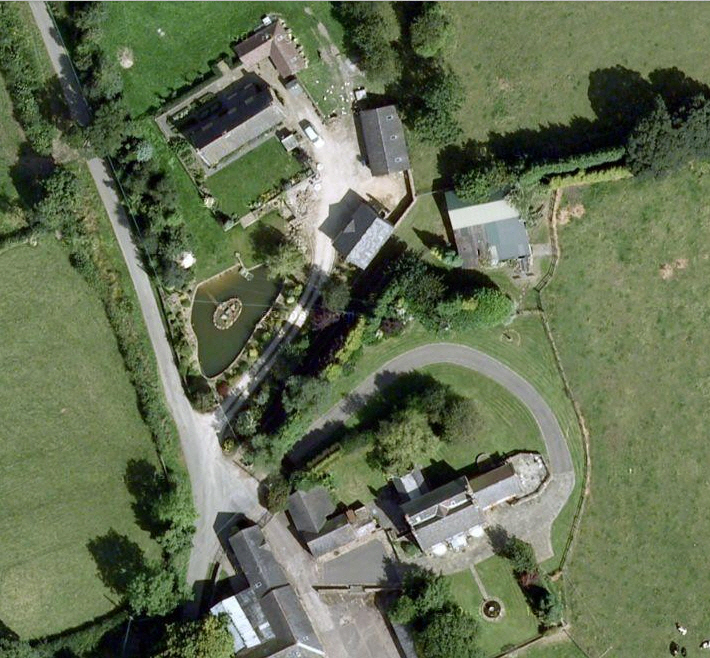|
GEORGE HEATH AND T. E. HULME - COINCIDENCE? As I’ve mentioned elsewhere, my interest in George Heath began when I was intending to do a website about writers from Stoke-on-Trent and the surrounding area of North Staffordshire. Another writer who would have been included was T. E. Hulme. Heath’s reputation as a poet has never bothered academics, whereas Hulme’s position as one of the founders (alongside Ezra Pound) of the Imagist school of poetry has assured his place in the canon of English Literature. What I have always found intriguing is the fact that Hulme was born at Gratton Hall, which lies next door to the Poet’s Cottage, the house where George Heath died.
This coincidence (and it is probably no more than that) has niggled me ever since I found out about it, and I always wanted to find some more evidence to link the two poets. In Robert Ferguson’s biography, The Short Sharp Life of T. E. Hulme (Allen Lane/Penguin Books, 2002), any further connection is dismissed in the following passage: “On the neighbouring farm, a couple of hundred yards away, lived George Heath, known locally as the Moorland Poet, a writer of folksy ballads and still a man of much greater local renown than Hulme. About all they had in common was an early death - Heath died of consumption in 1869 at the age of twenty-five.” And he is probably right - although the ‘folksy ballads’ indicates that he’s not made a study of Heath’s entire output. There is no direct connection between Heath and Hulme except the fact that they were neighbours. George Heath of course died 14 years before T. E. Hulme was born, but the Heath family, including George's father, were still living there in 1883 and given the fact that even today the house is referred to as “the Poet’s cottage”, Hulme must have known about his tragic neighbour. And when the Hulme family moved down the road to Endon, when Thomas Ernest was just a small boy, to a house opposite the church, the Rev. James Badnall was still the vicar there.
So, I think it’s safe to assume that T. E. Hulme would have known about George Heath, would have known that he was a poet, would have known the story of his short life and would have read at least some of his poems. Beyond this, all is speculation. Perhaps Hulme's antagonism towards romantic poetry was initially spurred by having the perfect image of the romantic poet, George Heath, literally on his doorstep. Ferguson is quite right when he says that Heath is “still a man of much greater local renown than Hulme” - ask anyone in the villages of Horton and Gratton about George Heath and they will tell you where he is buried and where his house stands - do the same with T. E. Hulme and you’re met with blank looks. Perhaps T. E. Hulme grew up resenting the ‘fame’ of his neighbour’s dead son who had managed to achieve it merely by dying young and writing a few ‘folksy ballads’. But no, that’s taking speculation too far. Two poets, neither from literary backgrounds, both the sons of farmers (though there was a difference in their social class). One almost self-educated, the other going off to Newcastle High School and then Cambridge. One living all his brief life in one fairly remote rural area. The other travelling the world, mixing with the great poets and artists and thinkers of the time, then meeting his death in the First World War. No, if there is a link it rests in Hulme’s childhood in Gratton and Endon, and since he never seems to mention Heath in his writings, we’re left in the realm of unconscious influences and that old Jesuit adage: “Give me a child until he is seven and I will give you the man”.
Hulme’s poetic output is famously small, both in the length of the poems themselves and in the number of poems he wrote. So it is quite easy to read them all. Here is one: THE POET
Over a large table, smooth, he leaned in ecstasies,
In a dream.
He had been to woods, and talked and walked with trees.
Had left the world
And brought back round globes and stone images,
Of gems, colours, hard and definite.
With these he played, in a dream,
On the smooth table.
And here is another: AUTUMN
A touch of cold in the Autumn night
I walked abroad,
And saw the ruddy moon lean over a hedge
Like a red-faced farmer.
I did not stop to speak, but nodded;
And round about were the wistful stars
With white faces like town children.
And here is the last stanza of George Heath’s ‘April Fools’:
And here’s a picture, courtesy of google, of Gratton Hall (at the bottom with the winding drive), birthplace of T. E. Hulme, and the Poet’s Cottage (at the top with the duckpond) where George Heath died. |
|

